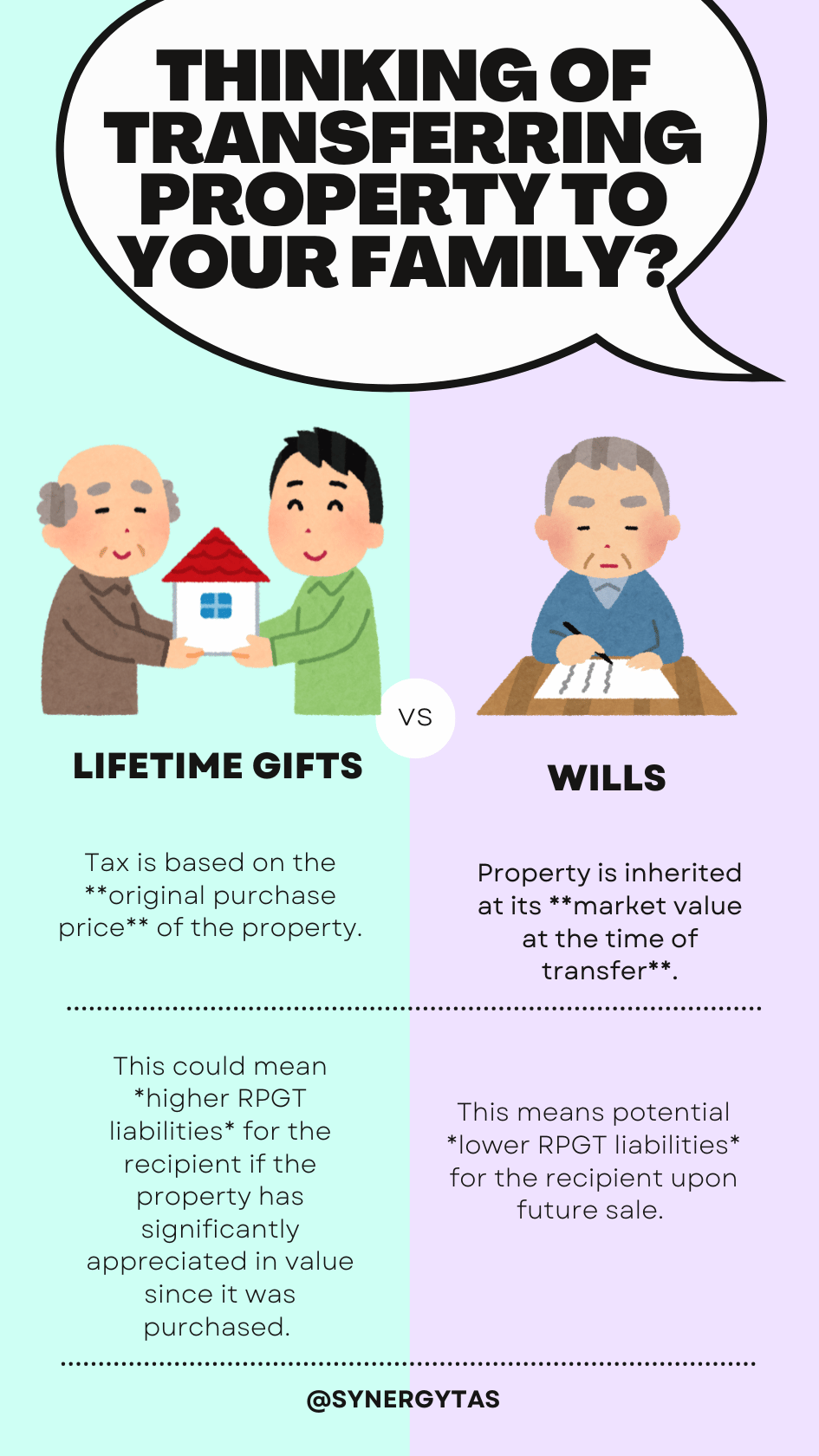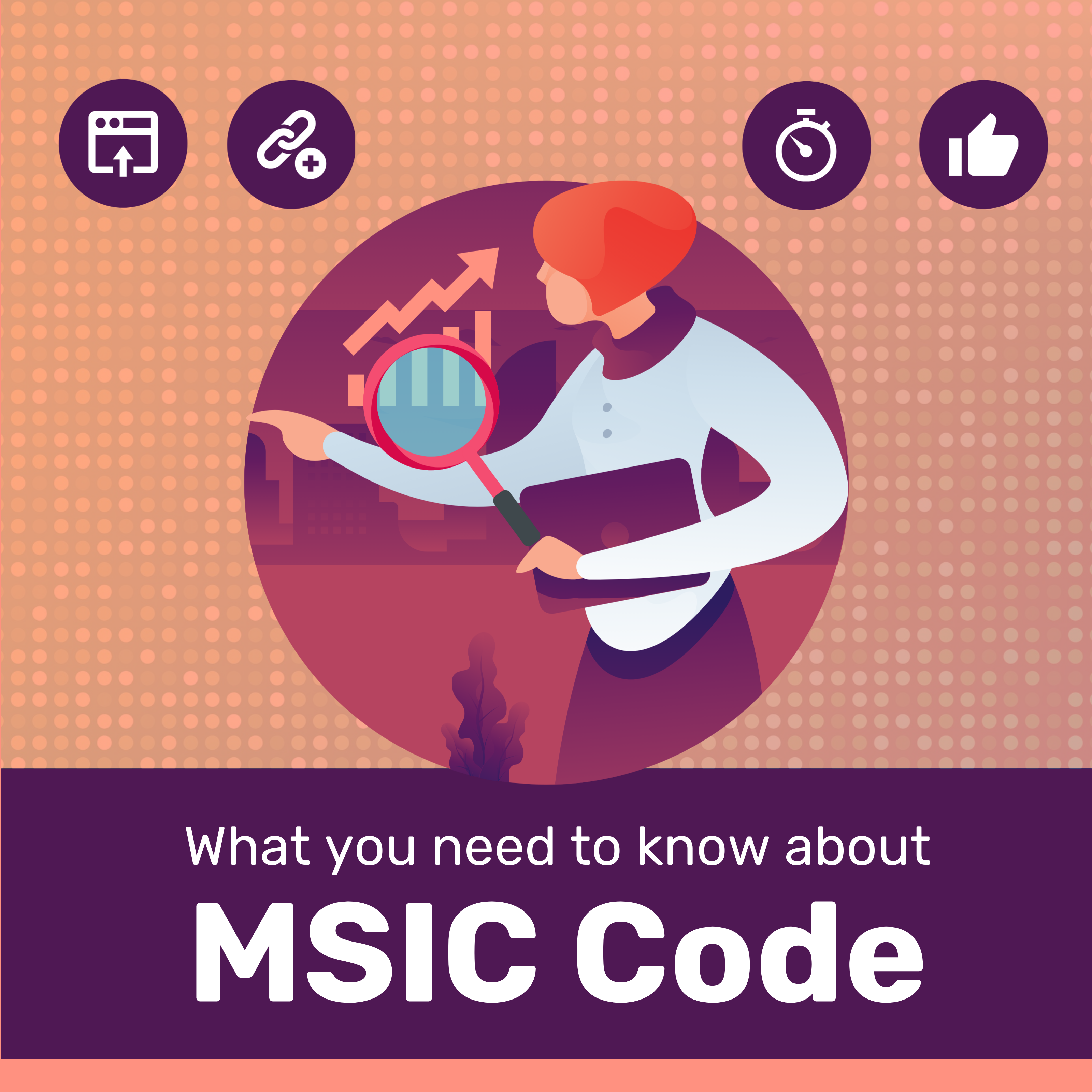Understanding the Impact of Real Property Gains Tax (RPGT) in Lifetime Transfer vs. Will in Malaysia
RPGT is a critical consideration when managing property transfers in Malaysia. Whether you transfer property during your lifetime or leave it via a will, the tax implications and processes can significantly differ. Here’s a detailed comparison of the two methods to help you make an informed decision.
1. Lifetime Transfer
Tax Implications
- RPGT Rate: Lifetime transfers are treated as a disposal of property, potentially subjecting the transferor to RPGT depending on the holding period. Malaysia’s RPGT rates range from 0% to 30%, decreasing with longer holding durations.
- Exemptions: Transfers between immediate family members (spouse, parents, or children) are exempt from RPGT, offering a tax-efficient option for intra-family property distribution.
Legal Process
- Requires a Sale and Purchase Agreement (SPA), followed by legal documentation to complete the transfer.
- Stamp duty applies (though exemptions for certain relationships like spouses or parent-child transfer might ease this burden).
Benefits
- Immediate Control: The recipient gains instant ownership, allowing for immediate asset use or management.
- Avoid Probate: Transfer bypasses probate, reducing delays and legal expenses.
- Tax Advantages for family members under the exemption clauses.
Drawbacks
- Tax Burden outside of immediate family transfers, potentially increasing costs.
- Once transferred, you lose control of the property, which might impact long-term planning.
- Transfer Price Consideration: For lifetime gifts, the recipient takes on the property at the original purchase price by the donor. This can heavily influence the recipient’s RPGT liability if they sell the property later, especially if it was acquired at a very low price decades ago. For example, if your parent purchased the property in the 1980s at RM100,000 and its current value is RM1,000,000, the significant gap between the original purchase price and the selling price in the future would result in higher RPGT liabilities for the recipient.
2. Transfer via Will
Tax Implications
- Property inherited via a will is exempt from RPGT. This makes wills a cost-effective option for avoiding tax on inheritance.
- However, the recipient becomes liable for RPGT if they later dispose of the property, based on its market value on the date of inheritance as the acquisition price.
Legal Process
- Requires probate, a court-supervised legal process to validate the will and authorize estate distribution.
- Probate can be time-consuming (several months to years) and incur legal fees.
Benefits
- Control During Lifetime: Ownership remains with you until death, allowing you to adjust your will or manage property without interference.
- Tax Savings on inheritance, as property transfer through wills is not considered a disposal in the eyes of RPGT laws.
- Transfer Price Advantage: Recipients inherit the property at its market price at the time of transfer. This can significantly reduce their future RPGT liabilities, as the gap between the inherited price and eventual selling price will be smaller. For example, if the property’s market value is RM1,000,000 at the time of inheritance, the recipient will use that as the base price for RPGT calculation upon future disposal, providing a much more favorable tax position compared to a lifetime gift.
Drawbacks
- Delayed Ownership for heirs, as probate can be lengthy.
- Possible Disputes Over the Will, especially if its contents are unclear or contested.
Key Considerations for Financial Planning
When deciding between a lifetime transfer and transferring through a will, consider the following factors:
1. Tax Efficiency
- Lifetime transfers work best for immediate family transfers to avoid RPGT and pass on assets quickly, particularly for strategic estate planning. However, recipients may face higher RPGT liabilities if the property appreciates significantly in value.
- Wills are ideal for maintaining control of assets with minimal tax burden for inheritance and using an updated market price as the baseline for RPGT, creating future tax efficiencies.
2. Ownership Control
- For those who wish to retain control, passing assets via a will ensures you maintain ownership for life.
- Lifetime transfers require relinquishing ownership, which can affect your long-term asset management.
3. Timeline and Costs
- Lifetime transfers are generally faster, but potential RPGT liabilities and stamp duties must be managed.
- Wills involve probate delays and additional legal fees, though they eliminate RPGT at transfer.
4. Estate Management Goals
- If your priority is smooth ownership transition without disputes or delays, lifetime transfers might suit you better.
- If your aim is flexibility and retaining authority over assets, a will may be more appropriate.
5. Financial Implications of Transfer Price
The transfer price difference is a significant factor. With a lifetime gift, the original purchase price creates a larger RPGT burden upon future sale if the property has substantially appreciated over time. Conversely, receiving the property via a will sets a current market value as the baseline, which can drastically lower future tax costs. This is especially relevant for high-value properties in urban areas purchased decades ago when property prices were significantly lower.
Making the Right Choice
Both lifetime transfers and wills offer distinct advantages and limitations. For immediate family-related transfers, lifetime transfers can reduce tax implications and accelerate the process, though long-term RPGT liabilities must be carefully evaluated. On the other hand, wills offer control, inheritance tax savings, and a more favorable transfer price for RPGT.
Your decision should align with your estate planning goals, family needs, and long-term financial considerations. Consulting with a tax or legal expert is highly recommended to ensure compliance and the best outcomes for you and your beneficiaries.









